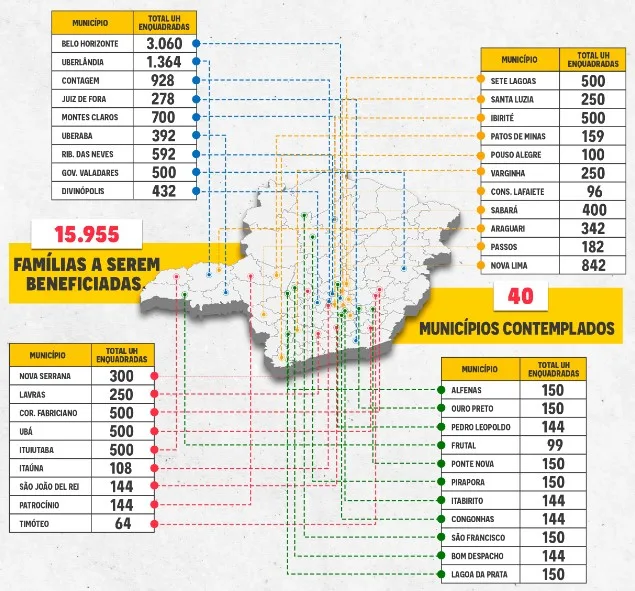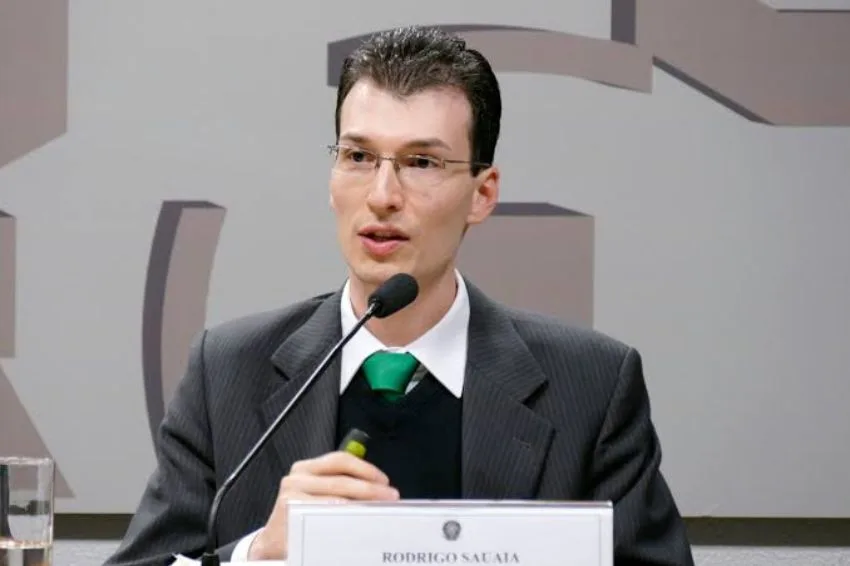O Federal government published a decree which provides for the creation of the “Light For All My Home, My Life”, with the aim of allocating R$ 3 billion for the promotion of solar energy in consumer units of the housing program.
The initiative plans to use the benefits of the source both through installation of photovoltaic systems in local units, as well as with the compensation of energy produced in remote units – the so-called solar farms. The estimate is to meet 500 thousand housing units by 2027.
According to the MME (Ministry of Mines and Energy), the state of Minas Gerais will be included in the first phase of works, benefiting around 16 thousand families in 40 municipalities (check the image below).
The idea is to reduce family spending on electricity bills, with actions aimed mainly at low-income families in the housing program, primarily in range 1 (urban and rural), and may also extend to range 2, in cases specific.

At ABSOLAR evaluation (Brazilian Association of Photovoltaic Solar Energy), the decree represents a major advance for democratization of solar energy and for the promotion of social justice in Brazil.
The entity understands that the resources allocated will have a “strategic role in reducing the electricity bill of the low-income population, as well as easing the budget of the poorest and will also contribute to strengthening the energy transition in the country”.
Rodrigo Sauaia, executive president of ABSOLATE, highlights that the inclusion of photovoltaic systems in the program will provide a reduction of up to 70% in the electricity bill of beneficiaries, relieving the budget of the most economically vulnerable population.
“Every real that a low-income family stops spending to pay the electricity bill at the end of the month can be used to improve their food, health, education, transportation and quality of life. Therefore, the inclusion of our own solar generation in the program is a great advance towards greater balance and social justice in the country”, he said.
All content on Canal Solar is protected by copyright law, and partial or total reproduction of this site in any medium is expressly prohibited. If you are interested in collaborating or reusing some of our material, we ask that you contact us via email: [email protected].
















